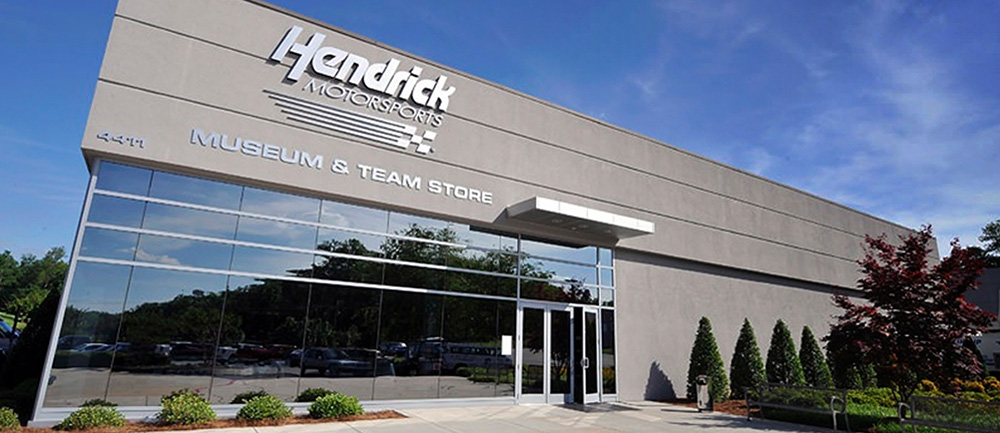CONCORD, N.C. – NASCAR’s annual All-Star Race will take place on Sunday night at Texas Motor Speedway (8 p.m. ET on FS1, MRN, SiriusXM NASCAR Radio). This is the second straight year that the 1.5-mile track outside of Dallas has hosted the race.
All four Hendrick Motorsports drivers have already qualified for the NASCAR All-Star Race that will see them battle it out for a $1 million payout. Drivers earned their spot in the event by winning a points-paying race in 2021 or 2022, being a past NASCAR All-Star Race winner or being a past NASCAR Cup Series champion. The latter two qualifications are met if you are currently a full-time driver in the NASCAR Cup Series.
The weekend will also see a pit stop competition take place during the race. A unique qualifying format is also on tap for the non-points event that will include head-to-head elimination rounds and utilize the pit crews in helping determine the pole position.
With this being different from a typical NASCAR weekend, we’ll break down everything you need to know in detail below.
SATURDAY SCHEDULE (All times Eastern)
7-7:35 p.m.: Group practices (NASCAR All-Star Open and NASCAR All-Star Race entries), FS1
7:35-7:55 p.m.: NASCAR All-Star Open qualifying, FS1
7:55-8:25 p.m.: NASCAR All-Star Race qualifying first round, FS1
8:25-9 p.m.: NASCAR All-Star Race qualifying elimination bracket, FS1
*All events will also be broadcast on MRN and SiriusXM NASCAR Radio
HOW DOES QUALIFYING WORK?
The opening round of All-Star Race qualifying will be a traditional single-car, one-lap format that goes in reverse order of the 2022 owner points entering the weekend. The fastest eight will transfer on to a three-round, head-to-head elimination bracket.
The elimination bracket will see two cars staged in an area near the end of pit road. At the sound of an alert, the drivers will drive into the pit box and each pit crew for the qualifying car will execute a four-tire pit stop. At the drop of the jack, drivers will exit their pit stalls with no speed limit and onto the track. The first car back to the start/finish line advances to the next round. This head-to-head format will reduce the bracket down from eight cars to four to two, with the final pairing competing for the pole position in Sunday’s race.
Drivers eliminated in the first round of head-to-head will start fifth through eighth based on their one-lap speeds from the first round of qualifying. The drivers eliminated in the second round of head-to-head will start third and fourth based on their one-lap speeds from the first round of qualifying.
SUNDAY SCHEDULE (All times Eastern)
5:30 p.m.: NASCAR All-Star Open, FS1
8 p.m.: NASCAR All-Star Race, FS1
*All events will also be broadcast on MRN and SiriusXM NASCAR Radio
WHO ADVANCES FROM THE OPEN?
Three stages of 20 laps, 20 laps and 10 laps are held in an event prior to the NASCAR All-Star Race. The winners of each stage will transfer into the All-Star field. A Fan Vote winner will take the final spot in the field. The All-Star Open stage winners and Fan Vote winner will start at the back of the field.
WHAT IS THE FORMAT FOR THE ALL-STAR RACE?
Stage one: 25 laps
Stage two: 25 laps
Stage three: 25 laps
Final stage: 50 laps
HOW DOES THE PIT STOP COMPETITION WORK?
Between stages two and three, there will be a pit stop competition. Each team must pit and do a four-tire stop. The team with the shortest time on pit road, that includes pit-in and pit-out times (without a penalty), wins the pit crew award. The No. 9 pit crew took home this award last year.
HOW WILL THE LINEUP BE SET FOR THE FINAL STAGE?
This is where the stage winners earlier in the race play a big role. The stage one winner will start first with the Stage two winner starting second. The stage three winner will line up third and the pit stop competition winner will be fourth. The stage one, stage two and pit stop competition winner’s positions are contingent on those drivers finishing the ensuing stages after their wins 15th or better.
If a "natural" caution occurs between laps 15-25 of the final stage, standard race procedures will apply. If no "natural" caution occurs during that time, NASCAR will call an “All Star” competition caution. The final stage winner takes home the $1 million prize.
HOW MANY TIMES HAS HENDRICK MOTORSPORTS WON THE ALL-STAR RACE?
Ten times with five drivers
Jeff Gordon (1995, 1997, 2001)
Terry Labonte (1999)
Jimmie Johnson (2003, 2006, 2012, 2013)
Chase Elliott (2020)
Kyle Larson (2021)
The Gordon, Labonte and Johnson wins all came at Charlotte Motor Speedway. Elliott won when Bristol Motor Speedway hosted the event. Larson won last year’s race at Texas.
In Hendrick Motorsports history, the All-Star Race winner has gone on to win the NASCAR Cup Series championship seven times (1995, 1997, 2001, 2006, 2013, 2020 and 2021).







